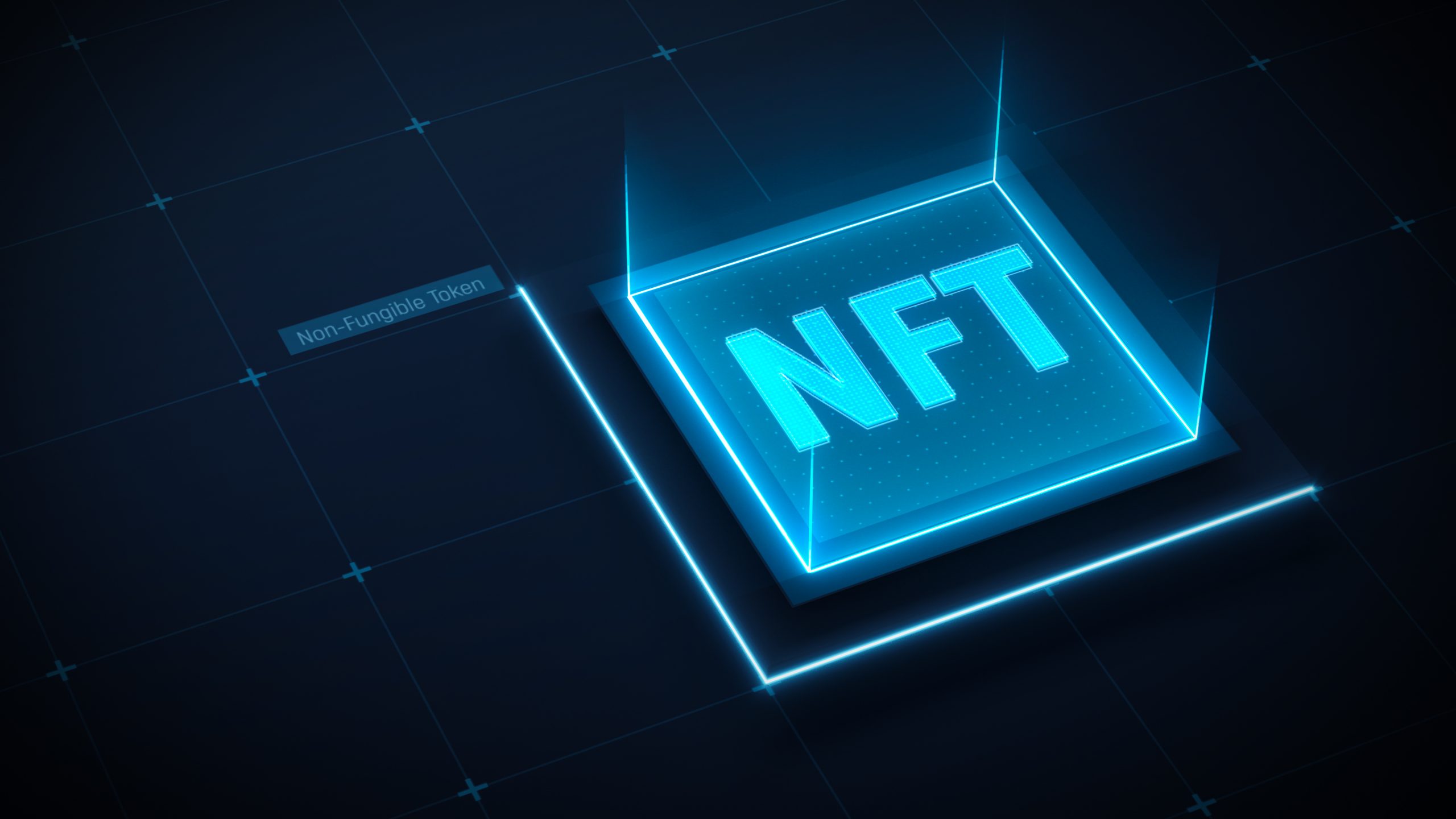“Blockchain technology provides no relief to owners that lose the private digital keys that prove their ownership of a blockchain-recorded asset. People who lose their private keys are out of luck.”
 Non-fungible tokens, or “NFTs,” have captured headlines, offering the perfect mix of poorly understood technology and incredible sale prices. The first patent NFT auction by True Return Systems and the newly announced patent NFT exchange under development by IPwe and IBM could not be better timed to take advantage of the buzz. With all of the hype, companies understandably wonder whether they need to “tokenize” their patent portfolios to NFTs in this first wave simply to get ahead of the inevitable transition.
Non-fungible tokens, or “NFTs,” have captured headlines, offering the perfect mix of poorly understood technology and incredible sale prices. The first patent NFT auction by True Return Systems and the newly announced patent NFT exchange under development by IPwe and IBM could not be better timed to take advantage of the buzz. With all of the hype, companies understandably wonder whether they need to “tokenize” their patent portfolios to NFTs in this first wave simply to get ahead of the inevitable transition.
For most companies, prudence counsels stepping back and letting the technologies and the markets mature. First, blockchain technology, as it currently exists, only creates clarity of ownership though harsh outcomes. Second, creating highly liquid patent license markets may interfere with the existing patent strategies of many patent owners.
Blockchain
Blockchain is the backbone for the proposed patent NFT exchanges and acts as a “distributed ledger” containing agreed-to facts. Participants in the blockchain add blocks to the blockchain sequentially, with each block including a hash of the block before it. If multiple participants hold copies of the blockchain, any change by any one blockchain participant can easily be identified by the others. The active participants holding copies of the blockchain vote whether to add the new block with its verified transactions. The end result is a shared record with a set of facts that at least a majority of participants agreed is correct. Blockchain provides the open transparency needed to imbue trust in the accuracy and validity of transactions recorded on the blockchain.
Non-Fungible Tokens and One-of-a-Kind Tracking
The blockchain system is quite useful for establishing a sequence of events and keeping track of objects. Tracked objects can be real, like cargo shipments, or purely digital, like cryptocurrencies. Further, blockchain quite easily tracks individual objects. For example, blockchain does not just track a quantity of bitcoin through a transaction. Rather, blockchain traces each individual bitcoin through the transaction. It would be like a bank tracing a serial number for each dollar and coin in your direct deposit paycheck.
Because of this individualized tracking, blockchain is well suited to track things that are one-of-a-kind through a series of transactions. The concept of an NFT is to create a unique digital fingerprint, which might represent something like digital artwork or a well-known online meme. Then, that digital fingerprint can be tracked through the blockchain over transactions from owner to owner like a cryptocurrency coin. The idea is that the owner of the NFT will be treated as the owner of the “original.” A patent is a unique original legal right that can be represented as a unique NFT. A patent NFT system tracks ownership of and transactions involving the patent and/or patent licenses on the blockchain represented as NFTs.
Ownership Certainty Through Harsh Results
Understanding the implications of a patent NFT market exchange requires understanding that cryptocurrencies and NFTs are not purely technological innovations. Both involve rules governing the actions of the people using the blockchain that captures the NFT transactions. One such rule is the treatment of the current holder of the NFT or cryptocurrency coin as recorded on the blockchain as the real owner with little, if any, expectation of further inquiry. Norms, not technology or laws, dictate whether people choose to treat that blockchain record as definitively establishing ownership. For example, blockchain does not track off-chain asset transfers, nor does it guarantee that the current holder obtained the asset without identity theft. Much like the laws protecting a bona fide purchaser for value, there may be little protection for acquiring rights recorded on blockchain through a private off-chain transaction. An off-chain ownership transfer that conflicts with an on-chain transaction may be treated as void as against subsequent purchasers on the blockchain. Finally, blockchain technology provides no relief to owners that lose the private digital keys that prove their ownership of a blockchain-recorded asset. People who lose their private keys are out of luck. Those who have their keys stolen through a data breach or identity theft can only hope that the scale of the breach affects so many users that there might be enough votes by blockchain computing nodes to support wholly rewriting the blockchain through a fork.
Patent NFTs Benefit from Clarity of Ownership, But at What Cost?
For cryptocurrencies like bitcoin, these harsh outcomes are a necessary price for a bitcoin to be as easy to spend or exchange as a dollar. Performing a due diligence search every time you purchase a candy bar is untenable. According to Cheryl Milone Cowles, Chief IP Officer of IPwe, clarity of ownership is a major benefit of blockchain-based patent transactions. Cowles claims that “distributed network verification …provides the confidence of transacting with a clear current title and history.”
However, it is unlikely that the benefit of low-cost clarity of title in cryptocurrencies outweighs other negatives when applied to patent ownership. Patents are subject to existing norms and caselaw regarding challenges to apparent ownership. For example, could a patent owner reeling from theft of their patent NFTs in a ransomware attack reasonably expect a judicial hearing in which they might reestablish underlying ownership? What legal mechanisms and evidence are acceptable in court for proving patent ownership in the form of an NFT where there is no conventional written assignment document? While speed and ease of transaction are vital to the usefulness of cryptocurrency, they are not vital to the fundamental purpose of a patent. Consequently, there seems to be little need to accept a system that relies on such harsh outcomes at present.
Undoubtedly, specific patent NFT platforms, like the upcoming offerings from IBM and IPwe, will go far beyond simply providing ‘bitcoin but for patents.’ It would be deeply unfair to assume that these companies with consistent and impressive track records of innovative patent transactional expertise have not improved on or eliminated these potential pitfalls. However, potential users of these systems should arm themselves with the knowledge that the invocation of blockchain by itself will not deliver commodities-like trading ease to the patent world. Instead, business leaders should engage with the technology and understand any trade-offs necessary to obtain the benefits being touted.
Resale Markets End License Exclusivity
The ease of tracking transactions on blockchains provides many features that could readily support a more liquid patent license market. Further, because of the greater control regarding the license terms, a patent owner using an NFT system for license exchange could limit the right of license holders to sell and/or assert their license off-chain reducing concerns of unrecorded license transfers. Easy resale can also increase the value of an asset and may allow a patent owner to reap a higher return for the initial sale of a license.
However, creating a resale market for non-exclusive licenses also ends the patent owner’s status as the exclusive provider of patent licenses. Instead of each potential licensee needing to go through the patent owner to obtain a license, a potential licensee can instead obtain a license from a patent license NFT holder through the resale market. Many businesses will not welcome this loss of exclusivity. For example, a patent-owning business might readily provide a license to its customers or to businesses in other industries. However, the same patent-owning business may wish to withhold such licensing to its direct competitors. Resale markets can frustrate such strategic licensing efforts.
Nonetheless, one can envision opportunities for high volume patent licensors, such as from patent assertion entities, patent pools, standard essential patent owners, and others, to creatively use smart contracts on blockchains to capture fees for each resale. Without the high transaction costs of associated litigation and extensively negotiated settlements, such patent licensors can potentially increase their net licensing profits while offering lower license royalties through a patent license NFT exchange market.
Wait and See
Even in view of the issues discussed above, blockchain technologies provide unparalleled potential to improve systems that track ownership. Accordingly, it is difficult to imagine that NFTs will not eventually play a key role in the patent system. However, most companies will miss little by waiting to see how the system resolves these issues. If the resulting system fits with their business models, there will be plenty of opportunity to jump on later.

![[IPWatchdog Logo]](https://ipwatchdog.com/wp-content/themes/IPWatchdog%20-%202023/assets/images/temp/logo-small@2x.png)

![[[Advertisement]]](https://ipwatchdog.com/wp-content/uploads/2024/04/Patent-Litigation-Masters-2024-banner-early-bird-ends-Apr-21-last-chance-938x313-1.jpeg)

![[Advertisement]](https://ipwatchdog.com/wp-content/uploads/2024/04/Patent-Litigation-Masters-2024-sidebar-early-bird-ends-Apr-21-last-chance-700x500-1.jpg)

![[Advertisement]](https://ipwatchdog.com/wp-content/uploads/2021/12/WEBINAR-336-x-280-px.png)
![[Advertisement]](https://ipwatchdog.com/wp-content/uploads/2021/12/2021-Patent-Practice-on-Demand-recorded-Feb-2021-336-x-280.jpg)
![[Advertisement]](https://ipwatchdog.com/wp-content/uploads/2021/12/Ad-4-The-Invent-Patent-System™.png)







Join the Discussion
11 comments so far.
Kim hyun ho
September 25, 2021 08:00 amAgree
Akeo Blockchain Consultancy
July 15, 2021 07:39 amThe world splits in half when talking about the benefits of NFTs. We need to explore more into the technology to identify its true benefits.
Teng Bao
July 10, 2021 09:01 pmMr Erich, it is customary to have a 2 after a 1 in most numerical systems.
Cryptography is probably not going to work for you
Pro Say
July 9, 2021 01:55 pm“3. I think the anonymous comments so far show all the intellectual depth and insight I would expect of anonymous comments”
Chuckles Erich. As wise and creative as you are, you know as well as everyone else does (or should by the time they reach, oh . . . 30 years of age or so):
It’s what is said that matters . . . not who’s doin’ da sayin’.
Great — and foolish — ideas come from anywhere . . . from anyone . . . and at any time.
NFTs are foolish.
They’ll only be around until the foolish money runs out.
Anon
July 9, 2021 12:52 pmAnd yet another:
https://ipwatchdog.com/2021/06/07/ibm-ipwe-partnership-hopes-increase-patent-efficiency-propel-transactions/id=134326/
This one includes comments left unanswered (by that self-same “I use my real name” person).
Anon
July 9, 2021 12:50 pmAnother:
https://ipwatchdog.com/2021/06/08/due-diligence-participating-nft-transaction/id=134284/
Anon
July 9, 2021 12:49 pmSadly, Mr.Spangenberg dips into the mindless fallacy of “only real names have value.”
Past comments on the topic may be found by generally searching IPWatchdog for “NFT,” and include such results as:
https://ipwatchdog.com/2021/04/22/non-fungible-tokens-force-a-copyright-reckoning/id=132435/
Anonymous Commenter
July 9, 2021 10:10 am@IPwe
$50M spent and nothing to show 3 years later?
Not betting on that horse!
Erich Spangenberg — CEO @ IPwe
July 9, 2021 06:17 am1. I think the authors raise some good points and they have identified some of the issues that are part of the reason this NFT project has taken us almost three years and $50 million to develop
3. I think the anonymous comments so far show all the intellectual depth and insight I would expect of anonymous comments
4. IPwe, Cheryl and me are easy to find — if you have something constructive (even if negative) to tell us, want to help out or have a question, please feel free to contact us via our website or LinkedIn
Anon
July 8, 2021 06:01 pmPro Say,
I agree with you.
Pro Say
July 8, 2021 03:56 pmNFTs: IP tulip mania:
https://en.wikipedia.org/wiki/Tulip_mania
Ponzi would be proud.